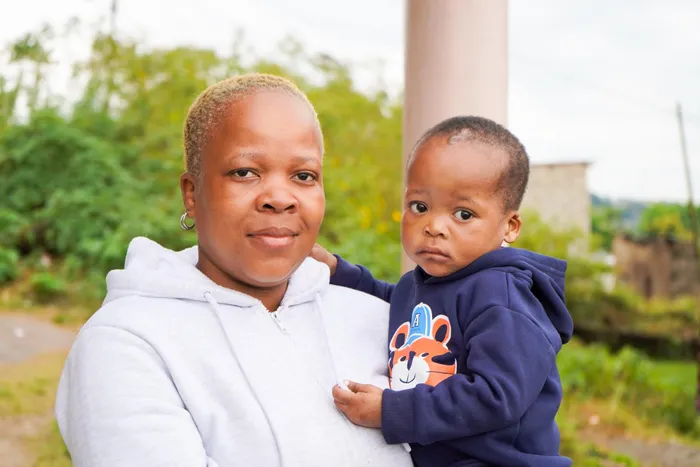Black stem cell donors needed to save lives

Bonakele’s two-year-old son needs a stem cell donor to survive a rare genetic disease. As a mother who has already faced loss, she’s urgently calling on South Africans to register – especially from Black communities where donors are scarce.
Image: Supplied / DKMS
In South Africa, a mother's desperate plea is echoing through the medical community, highlighting the urgent need for stem cell donors from Black communities.
Bonakele's two-year-old son Oyintando has been diagnosed with Wiskott-Aldrich Syndrome (WAS), a life-threatening genetic disorder that severely weakens his immune system and impairs blood clotting. Without a stem cell transplant, the prognosis is grim, with most children not surviving into adulthood.
Bonakele's journey has been nothing short of heart-wrenching. Having previously lost a child, the thought of losing another is unbearable. Her son's best chance of survival lies in finding a matching stem cell donor, but the odds are stacked against them. With fewer than 200,000 registered stem cell donors in South Africa, and an even smaller percentage from Black communities, the search for a match is akin to finding a needle in a haystack.
Organisations like DKMS Africa and the South African Bone Marrow Registry (SABMR) are working tirelessly to recruit more donors, particularly from underrepresented communities. According to Palesa Mokomele, Head of Community Engagement and Communications at DKMS Africa, "A simple cheek swab could identify the match her son – and so many others – desperately needs."
The SABMR has made significant strides in recent years, but more needs to be done. Currently, only 30% of registered donors are people of colour, which significantly reduces the chances of finding a match for patients from these communities. Becoming a stem cell donor is a relatively straightforward process, involving a cheek swab and an online health questionnaire.
If you're between 17 and 55 and in good health, consider registering to become a stem cell donor. You could be the lifeline a family like Bonakele's needs.
How to register:
Visit www.dkms-africa.org/save-lives to register.
Complete an online health history questionnaire
Provide a cheek swab sample at one of the SABMR's depot partners or through an at-home kit
Why it matters:
- Increases the chances of finding a match for patients from underrepresented communities
- Saves lives by providing a potential cure for blood cancers and disorders
- Simple and non-invasive registration process
Every donor has the potential to be someone's hero, and for Bonakele's son, it could mean the difference between life and death. A stem cell transplant is her son’s best and only chance. When performed early – ideally before the age of five – it can offer a survival rate of over 90%. But the biggest challenge is finding a matching donor.
A few minutes of your time could save a life.
Related Topics: